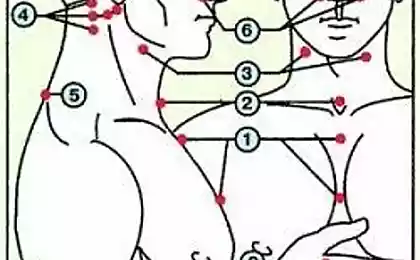104
7 Strategies to Overcome Fear of Judgment and Be Yourself in Any Situation
By following these strategies, you can overcome the fear of judgment. But let’s not hide: we will have to try hard.

Fear of judgment is not just an unpleasant feeling. It's an invisible prison that keeps millions of people locked up in their own confinements. Every day, we see talented individuals hiding their abilities, creative minds silenced in meetings, bright individuals turned into a gray mass – all because of a paralyzing fear of others’ opinions.
Studies show that more than 75% of people experience significant discomfort from the possibility of negative evaluation of others. This fear not only deprives us of the joy of life, but also becomes the main obstacle to success and self-realization.
The Anatomy of Fear: Why We Fear Judgment
The fear of judgment is rooted in a deep evolutionary survival agenda. Thousands of years ago, expulsion from the tribe meant certain death, so our brains still perceive social disapproval as an existential threat. A modern man may logically understand that criticizing a colleague will not kill him, but ancient instincts continue to sound the alarm.
The paradox of human nature is that we fear the judgment of those whose opinions we do not really value.
Social media has exacerbated this problem. Now every post, every photo, every statement can become the object of criticism not only acquaintances, but also complete strangers. We live in an era where valuation has become a currency and likes a measure of self-worth.
Seven strategies for freeing yourself from fear of judgment
1 Recognize envy behind the mask of criticism
Every time you encounter a backlash, ask yourself, “What if it’s not about me, it’s about who’s criticizing?” Envy is a master of disguise. It hides behind “constructive criticism,” “concern for your well-being,” and “a desire to help.”
Practical advice: Create a thought filter. Before you take criticism to heart, consider whether the critic has achieved what he criticizes in you. If not, there is a high probability that you have encountered a projection of other people's complexes.

2 Define your values and become their guardian
A man without clear values is like a ship without a compass, hurled from side to side with every wave of opinion. When you clearly understand what really matters to you, criticism loses its destructive power.
Exercise Value Compass: Write a list of 10 things that are most important to you in life. Then reduce to 5, then to 3. These three values will be your inner compass in any situation.
3 Embrace the mathematics of human relationships
Here’s a simple truth that few people realize: it’s physically impossible to please everyone. Even if you find a cure for cancer, there's bound to be someone who says you did it too late.
Attention: Trying to please everyone is not a virtue, but a form of emotional suicide. You dissolve your personality in trying to live up to other people's expectations.
4 Become a collector of your own victories
Our brains are designed to remember negative events more vividly than positive ones. It's an evolutionary survival mechanism, but in the modern world, it plays against us. We remember every criticism, but we forget hundreds of compliments.
Museum of Achievement: Create a digital or physical archive of your success. Keep thank you letters, screenshots of positive reviews, photos of awards. Turn to this museum when the fear of judgment attacks your self-esteem.
5 Build Your Circle of Trust
The opinion of a random stranger on the Internet can not have the same weight as the opinion of your mentor or close friend. Create a hierarchy of opinions: determine whose grades are really important to you.

6 Become your best friend
The most violent critic often lives in your own mind. We talk to ourselves in ways we would never dare to talk to friends. It is time to change this internal dialogue.
If you cannot be kind to yourself, how can you expect kindness from others?
7 Build a ladder of courage
The fear of judgment can only be overcome by practice. Create a gradual program to get out of your comfort zone – from small steps to big accomplishments.
The ladder of courage:
- Express your opinion in a small group of friends
- Ask the waiter to change the order at the restaurant
- Post a personal opinion on social media
- Give a presentation at work
- Share a creative project with a wide audience
The Neurobiology of Courage: What Happens in the Brain
Research in neuroscience shows that regular practice of overcoming fear of judgment physically changes the structure of the brain. The prefrontal cortex, the area responsible for rational thinking, becomes stronger, and the amygdala, the center of fear, becomes less active.
Every time you act against the fear of judgment, you literally rewire your brain. This is not a metaphor, this is a scientific fact.
Practical tools for daily use
5-4-3-2-1 Technique: When you feel the fear of judgment approach, name 5 things you see. 4 things you touch; 3 sounds you hear; 2 smells; 1 taste. It lands you in the present moment.
Worst-Scenario Method: Imagine the worst outcome of your actions. He's usually not as scary as he looks. Now think of the best scenario and the most likely. This helps to soberly assess the risks.
Your new reality
Overcoming the fear of judgment is not a one-off event, but a way of life. It is a daily choice between the comfort of mediocrity and the discomfort of growth. Remember, those who criticize you for being yourself live in the prison of their own fears.
The world needs your uniqueness. Do not deprive him of this gift because of the opinion of those who are afraid to live truly.
Glossary
Comfort zone
A psychological state in which a person feels familiar, safe and controlled, without anxiety or stress.
Cognitive dissonance
Psychological discomfort that occurs when conflicting beliefs, ideas or values clash.
projection
The defense mechanism of the psyche, in which a person attributes to others his own unconscious thoughts, feelings or motives.
Prefrontal cortex
The area of the brain responsible for executive function, planning, decision-making, and emotion regulation.
Almond-shaped
Brain structure plays a key role in processing emotions, especially fear and anxiety.
Social anxiety
Intense fear of social situations associated with fear of negative evaluation of others.
Self-efficacy
Convincing a person of their ability to successfully complete tasks and achieve goals.
Women's Winter Shoes 2025: A Guide to Choosing Stylish and Warm Shoes
Should you worry if your girlfriend has a lot of male friends?























